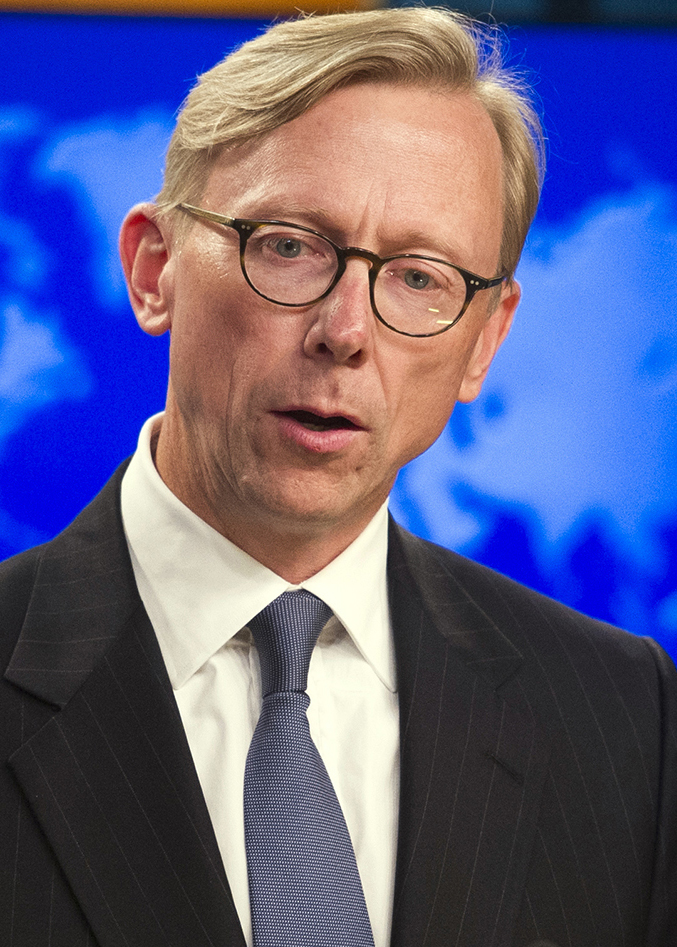President Trump’s renewed economic sanctions on Iran could push the regime towards a political crisis, according to a top State Department official.
“The Iranian people do not want to eat grass so that the regime can have a nuclear weapon,” Special Representative Brian Hook, the State Department’s envoy on Iran issues, said at the Center for Strategic and International Studies. “They just don’t.”

That assessment was modeled on former Pakistani leader Zulfikar Bhutto’s 1965 declaration that his country would “eat grass or leaves, even go hungry” in pursuit of a nuclear bomb if neighboring India acquired weapons of mass destruction. Hook repurposed the phrase on Wednesday to suggest that U.S. sanctions could loosen the regime’s grip on political power.
“The Iranian people are much closer to us than they are to their own regime, in terms of what they’re asking,” he said. “This is a regime that, over successive decades, has lost the support of almost every segment of the public of its country.”
Hook touted the protests against Tehran while marking the first anniversary of the president’s decision to withdraw from the 2015 nuclear agreement. Trump hit the regime Wednesday with new sanctions targeting “the export of industrial metals,” while Iranian President Hassan Rouhani announced that the regime plans to flout restrictions on their stockpiles of some of the material required for the production of nuclear weapons.
“The Iranian regime’s announcement today that it intends to expand its nuclear program is in defiance of international norms and a blatant attempt to hold the world hostage,” Secretary of State Mike Pompeo said in a Wednesday afternoon message. “Its threat to renew nuclear work that could shorten the time to develop a nuclear weapon underscores the continuing challenge the Iranian regime poses to peace and security worldwide.”
Those dueling positions could move the United States and Iran toward a rekindling of the nuclear crisis that many world leaders believe was headed off by the 2015 agreement. Hook argued that the threats only show that the deal left too much of the illicit nuclear program intact and said the Trump administration believed the deal empowered Iran’s regional aggression while paralyzing Western responses to the threats.
“They spent their sanctions relief the way they usually do — on a revolutionary foreign policy,” Hook said.
That defense of Trump’s exit from the deal doubled as an indictment of Iran that Hook believes could inflame Iranian public opinion against their leaders. “The one thing that this regime fears more than anything else is one free election,” he said, adding that the Iranian people “do not like this regime prioritizing ideology over their own welfare.”
But Hook rejected the idea that he was trying to provoke a political revolution. “What I have said is that we are trying to raise the costs of Iran’s foreign policy,” he said. “The Iranian people are going to decide the future of Iran. We have national security objectives that also align with what the Iranian people are asking.”

